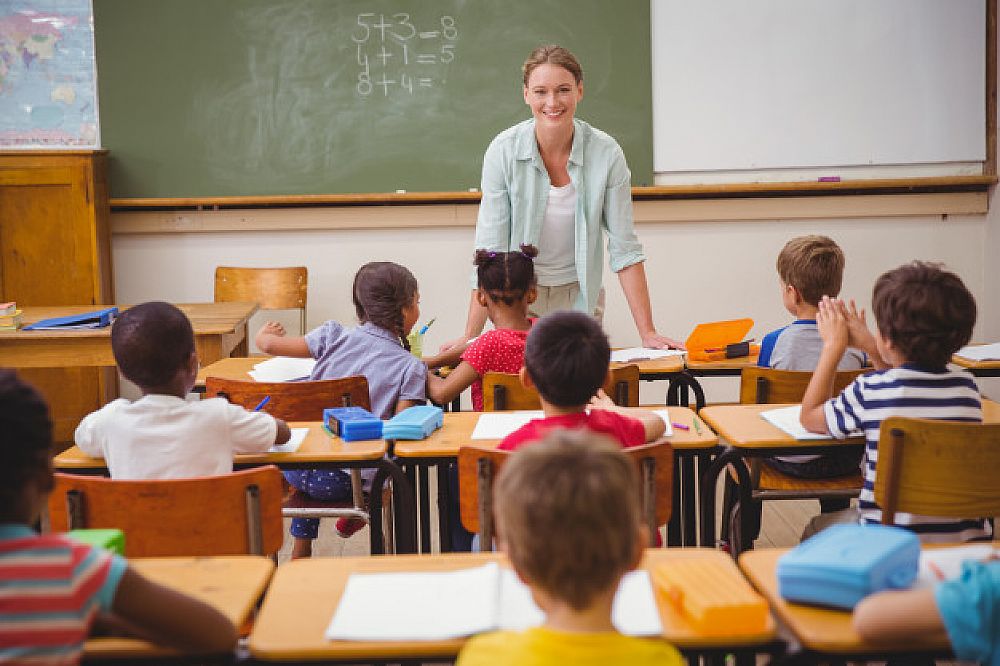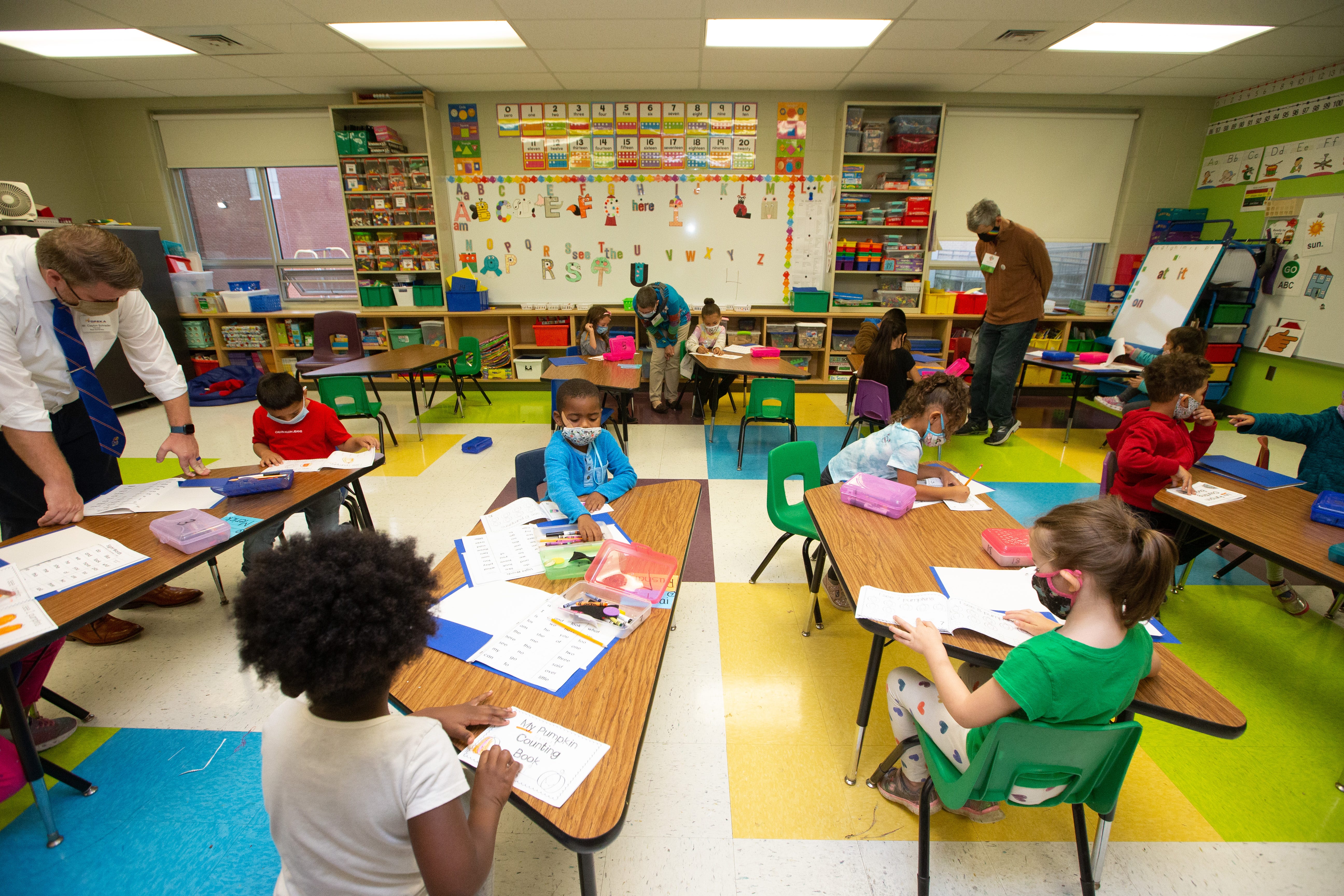Expert Primary Science Tuition Singapore for Understanding Complex Concepts
Expert Primary Science Tuition Singapore for Understanding Complex Concepts
Blog Article
A Comprehensive Guide to the Various Learning Methods in Key Scientific Research Direction
The exploration of varied understanding methods in key scientific research guideline offers a chance for educators to enhance pupil involvement and understanding dramatically. By checking out hands-on discovering techniques, inquiry-based strategies, and collective techniques, we can recognize reliable methods that accommodate numerous discovering designs. Furthermore, the integration of innovation and distinguished instruction plays a crucial function in fostering an inclusive setting. Nevertheless, the inquiry stays: just how can these techniques be properly executed in the class to maximize their effect? The response hinges on a closer assessment of each strategy and its implications for mentor scientific research.

Hands-On Understanding Techniques
Hands-on knowing methods play a crucial role in primary science direction, engaging pupils in active exploration and testing. These techniques enable students to engage straight with sensations and products, cultivating a much deeper understanding of clinical principles. By making use of manipulatives, versions, and real-life experiments, instructors develop a setting where pupils can observe, assume, and examine their concepts.
Such strategies not just improve comprehension however likewise grow important reasoning and problem-solving skills. When pupils take part in tasks like constructing simple devices, planting seeds, or performing chemical responses, they are urged to ask concerns and seek answers via their very own monitorings. This experiential technique assists to demystify intricate clinical principles, making them more available and relatable.
Additionally, hands-on learning advertises partnership among peers, as pupils commonly operate in teams to carry out experiments or share findings. This teamwork not just enriches their understanding experience however also creates necessary social skills. Inevitably, integrating hands-on techniques in key science guideline fosters a long-lasting love of discovering and interest about the all-natural world, laying a solid foundation for future scholastic pursuits in scientific research and beyond.
Inquiry-Based Discovering
Inquiry-based learning is an educational method that encourages pupils to ask questions, examine sensations, and construct their very own understanding of clinical concepts. This technique shifts the emphasis from traditional teacher-led guideline to a more student-centered experience, where students take the campaign in their educational journey. By cultivating inquisitiveness, inquiry-based learning promotes deeper interaction with the product, allowing students to check out topics in a purposeful context.
In practice, this method often involves hands-on experiments, observations, and crucial thinking activities that line up carefully with the clinical approach. Students are encouraged to develop hypotheses, style examinations, and examine information, which grows crucial abilities such as analytical and problem-solving thinking. The duty of the instructor in this structure is to promote expedition, leading students through the questions procedure while urging independent idea and cooperation.
In addition, inquiry-based learning supports a feeling of possession over the understanding procedure, encouraging students to pursue knowledge proactively. This approach not just enhances understanding of clinical ideas however also fosters a long-lasting love for understanding, furnishing trainees with the skills necessary to navigate a progressively complicated world.
Collaborative Understanding Approaches
Collective learning methods encourage pupils to engage in purposeful interactions with peers, promoting a common duty for their educational results. In main scientific research direction, these approaches motivate learners to collaborate to check out clinical principles, address troubles, and carry out experiments (primary science tuition Singapore). By joining team tasks, pupils can leverage diverse point of views, enabling for richer understanding and retention of clinical knowledge
One key aspect of collaborative knowing is the emphasis on communication skills. Trainees need to express their ideas, pay attention proactively to others, and bargain concepts, every one of which are crucial proficiencies in both real-world and academic contexts. This social interaction not only enhances their understanding of scientific principles but also advertises synergy and problem resolution abilities.
When students see the worth of their contributions within a team, they are more most likely to take possession of their discovering trip. On the whole, integrating collaborative understanding techniques in key scientific research guideline cultivates a vibrant learning environment that prepares pupils for future academic and social difficulties.
Technology Integration in Science
The assimilation of modern technology in primary her explanation science instruction enhances finding out experiences by supplying cutting-edge tools and sources that support numerous mentor methodologies, consisting of collaborative knowing - primary science tuition Singapore. The usage of digital platforms, simulations, and interactive applications allows trainees to engage deeply with clinical concepts, facilitating an extra hands-on approach to knowing
Digital laboratories, as an example, enable learners to conduct experiments safely and effectively, advertising inquiry-based understanding. These devices can simulate real-world clinical circumstances, allowing pupils to visualize intricate procedures that would certainly be hard to reproduce in a typical class setup. Moreover, innovation promotes communication and collaboration among pupils, as they can share searchings for and collaborate on tasks via on the internet platforms.
Additionally, multimedia discussions and academic videos can improve lessons by satisfying diverse knowing designs, making abstract ideas much more accessible. Information analysis tools additionally equip pupils to gather and translate scientific information, strengthening important thinking abilities. Generally, the tactical unification of innovation in key science instruction not just enhances involvement but additionally prepares students for a highly innovative society, furnishing them with crucial skills for future clinical undertakings.
Distinguished Guideline Techniques
Set apart instruction techniques are essential for dealing with the varied needs of learners in main scientific research education. These techniques make it possible for educators to tailor their training approaches to accommodate differing capacities, passions, and learning styles within the class. By employing distinguished direction, educators can develop an inclusive environment that fosters interaction and improves understanding of clinical principles.
One reliable approach is to use flexible grouping, which allows students to collaborate with peers at similar skill degrees or with varying perspectives. This approach encourages peer discovering and promotes vital thinking. Furthermore, providing options in projects can empower students, allowing them to pick tasks that resonate with their rate of interests click resources while still satisfying curricular objectives.
Furthermore, incorporating tiered assignments is an additional beneficial method. By creating tasks with varying degrees of complexity, educators can ensure that all pupils are properly challenged, no matter their effectiveness. Making use of formative assessments to determine recognizing additional enables educators to change their training approaches dynamically, making sure that each learner gets the support they require.
Ultimately, implementing set apart direction strategies in main science education and learning not only improves student discovering outcomes however also grows a passion for scientific research, preparing students for future academic searches.

Conclusion
In recap, reliable primary science direction requires a complex approach that encompasses hands-on discovering, inquiry-based look at this website approaches, and joint techniques. The assimilation of technology and separated guideline even more provides to varied learning styles, fostering an environment conducive to exploration and crucial thinking.
The exploration of diverse knowing methods in main scientific research direction provides a chance for teachers to enhance student engagement and understanding significantly.Hands-on knowing techniques play a critical role in key scientific research direction, engaging students in energetic expedition and testing.Inquiry-based knowing is an instructional strategy that urges trainees to ask questions, explore sensations, and build their own understanding of clinical ideas.Joint understanding techniques empower pupils to engage in meaningful communications with peers, promoting a shared obligation for their educational end results. Generally, incorporating joint knowing strategies in main scientific research direction cultivates a vibrant discovering environment that prepares students for future scholastic and social difficulties.
Report this page